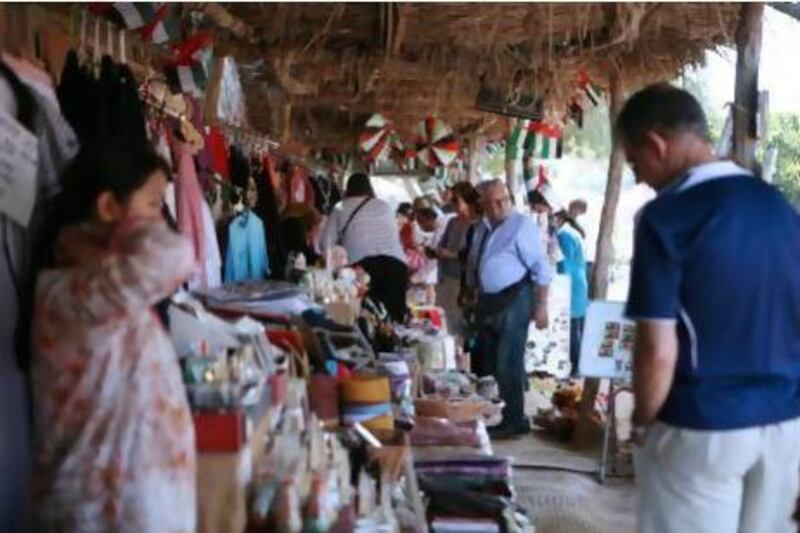DUBAI // Tourism has played a vital role in the growth of Dubai's economy, and its importance looks set to continue.
The planned opening of a raft of new theme parks and large projects over the next few years, coupled with the launch of a new airport for passenger traffic, Dubai World Central (DWC), are expected to help push visitor numbers even higher.
In 2002, 4.7 million people chose to holiday in the emirate. Last year that number increased to 10 million and the Government's goal is to attract more than 20 million by 2020.
Analysts believe that at the current rate of growth, reaching that figure in just seven years is entirely possible.
"There is certainly room for more growth," said Gaurav Sinha, a travel and tourism analyst in Dubai. "New routes are being announced by Emirates Airline all the time, which is opening Dubai up to tourists from different parts of the world.
"Dubai is one of the most enviable cities in the region in terms of leisure infrastructure. There are world-class shopping malls, waterparks, beaches and hotels, all of which have allowed the city to capture year-on-year tourism growth and make it one of the most attractive destinations in the world.
"With the opening of new attractions in the coming years, that trend is only likely to continue."
In November last year, Meraas, Sheikh Mohammed bin Rashid's development company, announced a Dh10 billion plan to build five linked theme parks, while the Marvel-themed IMG World of Adventure, which will be the largest indoor theme park in the world, is to open next year.
Bluewaters, a new development being built just off the coast of the already hugely popular Dubai Marina neighbourhood, will feature the world's largest Ferris wheel, the Dubai Eye. It will likely be completed in three years.
Ian Albert, regional director for Colliers International, said the increase in visitors to Dubai had helped to open up the rest of the country to tourists, with each emirate benefiting from its success.
"Dubai is no longer a stand-alone picture," he said. "You have adjacencies now in Abu Dhabi, which didn't exist before.
"Although people could say they detract from Dubai, I think they'll reinforce it as an entry hub. People will stay a few days longer because they have other things to do in other parts of the country."
Dubai's economy grew by 4.1 per cent in the first half of last year, the biggest GDP increase in five years. Tourism has played a key role in that.
Data from the World Travel and Tourism Council show that the sector's contribution to the GDP of the UAE last year was Dh182 billion and is set to rise 4.3 per cent annually to Dh277.8 billion by 2022, equivalent to 14.6 per cent of GDP.
A key motivating factor in the drive to attract even more tourists comes from Dubai's bid to host Expo 2020.
A decision on which city will host the event will be announced in November, and analysts believe even though the exhibition won't take place for another seven years, it will still boost tourism in the meantime.
"It will contribute immensely," said Premjit Bangara, from Sharaf Travel in Dubai. "The world's focus will be on the UAE, and you'll find a lot more people coming here."
Since its opening in 1960, Dubai International Airport has grown to become the world's second busiest.
According to statistics from the airport, in its first year it had 42,800 passengers. Last year, 57.8 million people passed through the airport.
An airport spokesman said there were plans to expand Terminals 1 and 2. Projections for 2020 for the existing airport and DWC are as high as 103.5 million passengers annually.
"Dubai International will continue to serve as the emirate's hub and accommodate the vast majority of those passengers until DWC is developed further," said Lorne Riley, spokesman for Dubai Airports.






